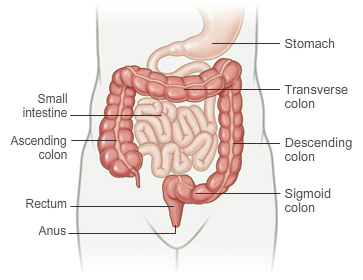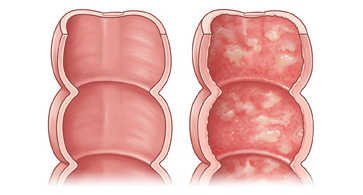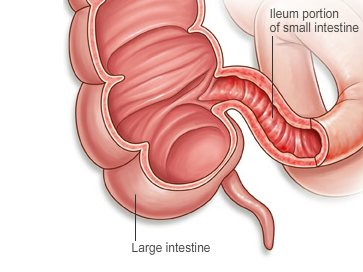
Inflammatory bowel disease (IBD) is a group of inflammatory conditions of the colon and small intestine. The major types of IBD are Crohn’s disease and Ulcerative Colitis.
Inflammatory bowel diseases are considered autoimmune diseases, in which the body’s own immune system attacks elements of the digestive system.
Both Crohn’s disease and ulcerative colitis are chronic (long-term) diseases that involve inflammation of the gastrointestinal tract (gut). However, there are important differences between the two.
Ulcerative colitis only affects the colon (large intestine), while Crohn’s disease can affect the entire digestive system, from the mouth to the anus.
What are the symptoms?

The main symptoms of Crohn’s disease and ulcerative colitis are similar. They include:
- abdominal (tummy) pain – this is more common in Crohn’s disease than in ulcerative colitis
- a change in bowel habits: urgent and/or bloody diarrhoea or (rarely) constipation
- weight loss
- extreme tiredness
Not everyone has all of these symptoms, and two individuals with the same condition can have very different symptoms. Some people may experience additional symptoms, including nausea and fever.
The symptoms of IBD can come and go over long periods. People may experience periods of severe symptoms (flare-ups), and go through periods when they have few or no symptoms at all (remission).
Typically the symptoms can be differentiated as follows:
| Crohn’s Disease | Ulcerative Colitus | |
|---|---|---|
| Defecation | Often porridge-like, sometimes steatorrhea | Often mucus-like and with blood |
| Tenesmus | Less common | More common |
| Fever | Common | Indicates severe disease |
| Fistulae | Common | Seldom |
| Weight loss | Often | More seldom |
| Further Reading | NHS Website – Crohn’s Disease | NHS Website – Ulcerative Colitus |
Causes and Treatment

The causes of Crohn’s disease and ulcerative colitis are unclear, though it appears that some sort of environmental factor in susceptible individuals causes the immune system (the body’s defence against infection) to malfunction. The immune system then starts attacking healthy tissue inside the digestive system, leading to inflammation.
Both Crohn’s disease and ulcerative colitis are treated with medications such as corticosteroids, which help reduce inflammation, and immunosuppressants, which block the harmful activities of the immune system. In cases, where neither of these medications work, the patient is put on biologics such as Infliximab and Humira.
Surgery may be required in cases that fail to respond to medication. Surgery usually involves removing an inflamed section of the digestive system.
Who is affected by IBD?
IBD is usually diagnosed in people in their late teens or early 20s, but it can appear at any age. It is more common in white people than in black people or those of Asian origin. The condition is most prevalent among Jewish people of European origin.
IBD affects slightly more women than men.
How common is IBD?
In the UK, it is estimated that 300,000 people suffer from IBD, it affects about one person in every 210.
